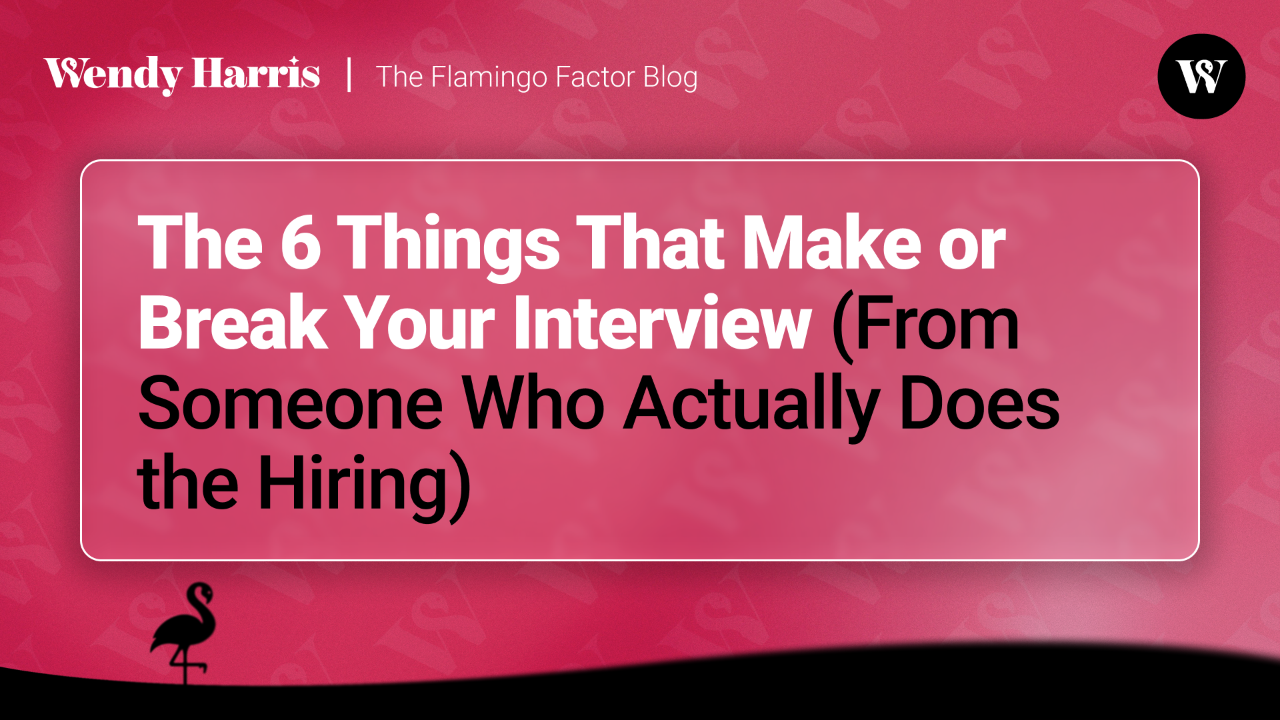The 6 Things That Make or Break Your Interview (From Someone Who Actually Does the Hiring)
Nov 06, 2025
After years of sitting across from candidates, I've noticed the same patterns emerge. Some people nail interviews not because they're the most qualified on paper, but because they understand what hiring managers are actually looking for. Here's my checklist, the six things that separate the standouts from the also-rans.
1. Self-Awareness (Or: Please Don't Rate Yourself 10/10 at Everything)
Nothing makes me reach for the "thanks but no thanks" email template faster than someone who thinks they're perfect at everything. When I ask about weaknesses and you say "I work too hard" or rate yourself 10/10 on every skill, you've just told me you lack basic self-awareness.
The best candidates know their strengths and can articulate areas where they're still developing. They'll say things like "I'm brilliant at client relationships but still working on my presentation skills" or "I'm technically strong but learning to be more strategic in my thinking."
Self-awareness isn't about underselling yourself, it’'s about being honest enough to grow.
2. A History of Moving Up, Not Just Moving On
I'm not impressed by job hoppers who change companies every 12 months for a 10% pay rise. I'm impressed by people who've been promoted within organisations, even if they've moved around a bit.
Promotions tell me someone saw your potential and backed it with their budget. It shows you can navigate office politics, deliver results, and convince people to invest in your future.
3. The Art of the Succinct Answer
Interview time is precious, and I'm not running a therapy session. If I ask about your biggest achievement and you're still droning on 5 minutes later then we have a problem.
Great candidates can tell compelling stories in 2-3 minutes. They hit the key points: situation, action, result. They know when to stop talking. They don't make me interrupt them to keep things moving.
Practice your answers, time them, and stop talking when you've made your point.
4. A Clear Rationale for Every Move
"Why did you leave Company X?" shouldn't be a difficult question, but you'd be amazed how many people stumble through it.
I don't need a dissertation, but I need a logical explanation. "I'd learned what I could there and wanted to take on bigger challenges" works. "My boss was a nightmare and the company was falling apart" doesn't, even if it's true.
If you bad-mouth previous employers, I'm wondering what you'll say about us in two years' time. Don’t do it.
5. Questions That Show You've Done Your Homework
"What does the company do?" is not a question I want to hear in an interview. Neither is "What would a typical day look like?", that's what the job description was for.
Ask about our challenges, our growth plans, recent company news you've read about. Ask about my experience working here, what success looks like in the role, how the team dynamics work.
These questions tell me you're serious enough to have spent 30 minutes on our website and recent press coverage. If you can't be bothered to research before the interview, how much effort will you put in if we hire you?
6. Time Management
You have questions for me, brilliant. But if you ask a question with 30 seconds left of interview time then you've just demonstrated terrible time management and a lack of understanding about executive calendars.
The Real Test
These six things aren't about being perfect, they're about being professional. They show you can reflect on your own performance, grow within organisations, communicate effectively, make logical decisions, prepare properly, and manage your time.
What This Really Means
Here's the thing most candidates miss: interviews aren't just about your qualifications. They're about whether I can imagine working with you every day, whether you'll fit with the team, and whether you'll make my life easier or harder.
Technical skills can be taught. These fundamental professional behaviours? Much harder to fix after the fact.
So next time you're preparing for an interview, spend as much time on these six areas as you do on rehearsing your technical knowledge. Your future self will thank you when you get the call.
Don’t Miss Out!
Sign up now to receive Wendy’s “5 Pillars to Make More Money and Accelerate Your Career” training for free. Join the newsletter and discover strategies trusted by top revenue leaders.


